History/ES 247 Reading Guide
African American Communities in Maine
- film: Anchor of the Soul 60 Minutes (1994).
- William D. Barry, “The Shameful Story of Malaga Island,” Down East Magazine XXVII:4 (November 1980): 53-56, 83-86. (e-reserve)
Further reading:
- Randy Stakeman, “The Black Population of Maine, 1764-1900,” New England Journal of Black Studies no. 8 (1989): 17-35.
- H.H. Price and Gerald E. Talbot, eds., Maine’s Visible Black History: The First Chronicle of Its People (Gardiner, Me.: Tilbury House, Publishers, 2006).
Further reading on Malaga Island
- Holman Day, “The Queer Folk of the Maine Coast,” Harper’s Monthly Magazine CXIX.712 (September 1909), 521-530. (e-reserve)
- Deborah Dubrule, “Evicted: How the State of Maine destroyed a ‘different’ island community” Island Journal 16 (1999), 48-53, 90-91.
Questions:
- If the Maine environment shaped the economic opportunities of Anglo-Americans who settled in Maine, and who created particular communities on the coast and in the hill country and the Maine woods, what kinds of opportunities—and limits to opportunities—did those economic and cultural communities offer to migrants who weren’t Anglo-American?
- Anchor of the Soul depicts the struggle of African Americans who worked to create and sustain a church in Portland—the site of the largest Black population in Maine, in the least diverse region of America. How does the film describe this particular history of African Americans and race relations in northern New England? What roles did the church play in the community?
- According to William Barry, what happened when African Americans attempted to create separate communities? In what ways was Malaga unusual, and in what ways was it symptomatic of race relations in Maine?
- How is the story of African Americans in Maine an environmental story as well as a community story?
Postcards:
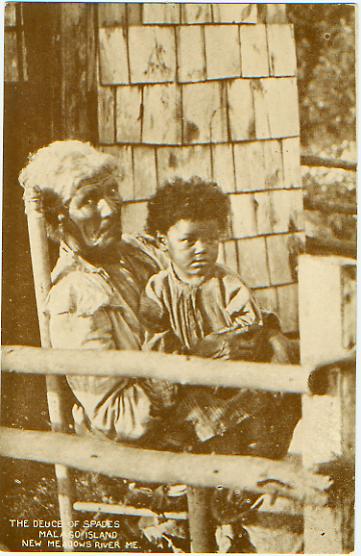
The Deuce of Spades Malaga Island New Meadows River Me. (c.1907, Boston Post-Card Co.)
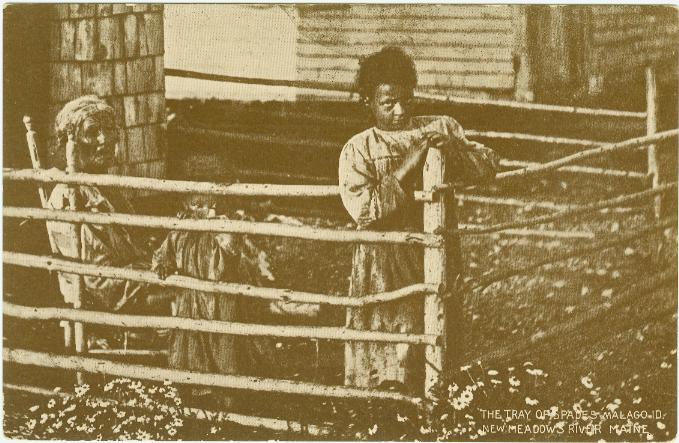
The Tray of Spades, Malago Id. New Meadows River Maine (c.1907, Boston Post-Card Co.)
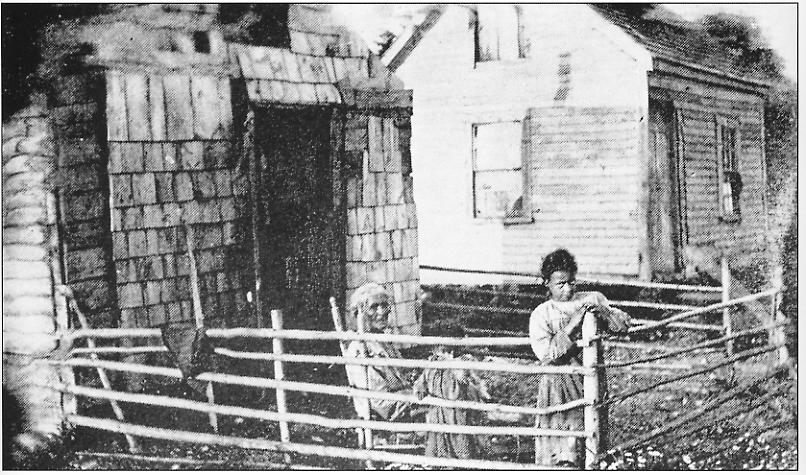
Scene at Malaga Island (the original photo from which the "Tray of Spades" was cropped). Source: Steve Mitchell, The Shame of Maine: The forced eviction of Malaga Island residents (Brunswick, 1999), 38-39.
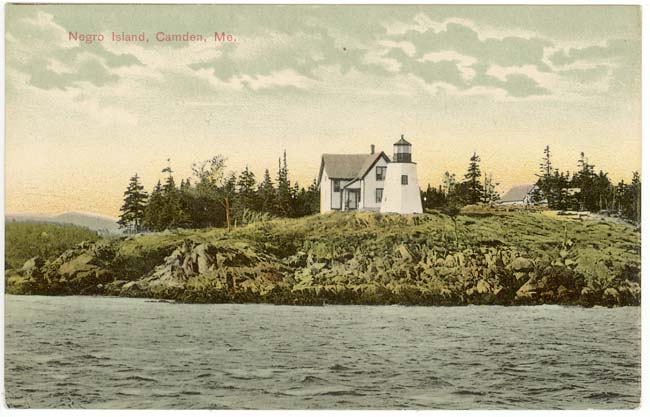
Negro Island, Camden, Me. (c.1909)
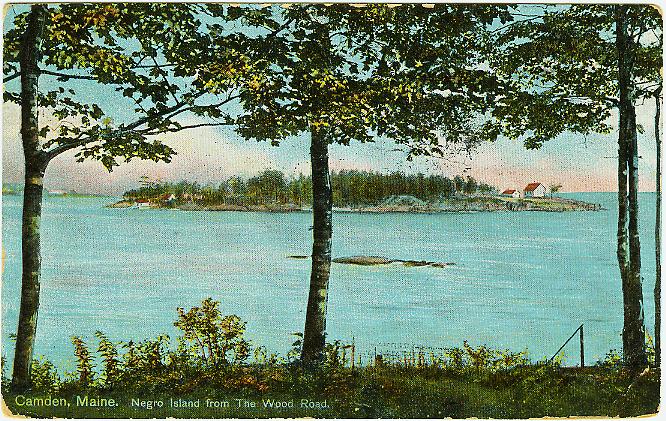
Camden, Maine. Negro Island from The Wood Road. (c.1910)
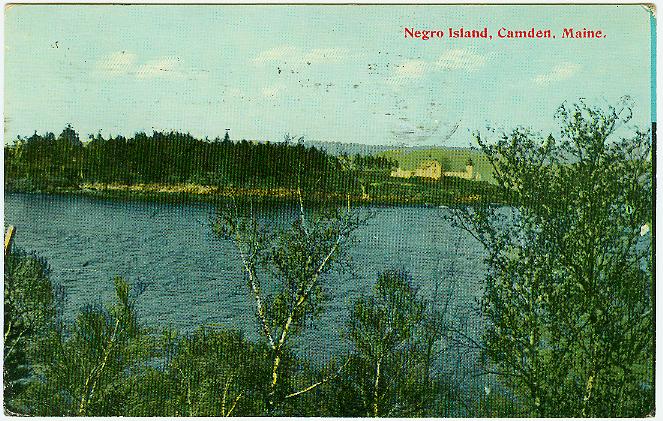
Negro Island, Camden, Maine. (c.1911)
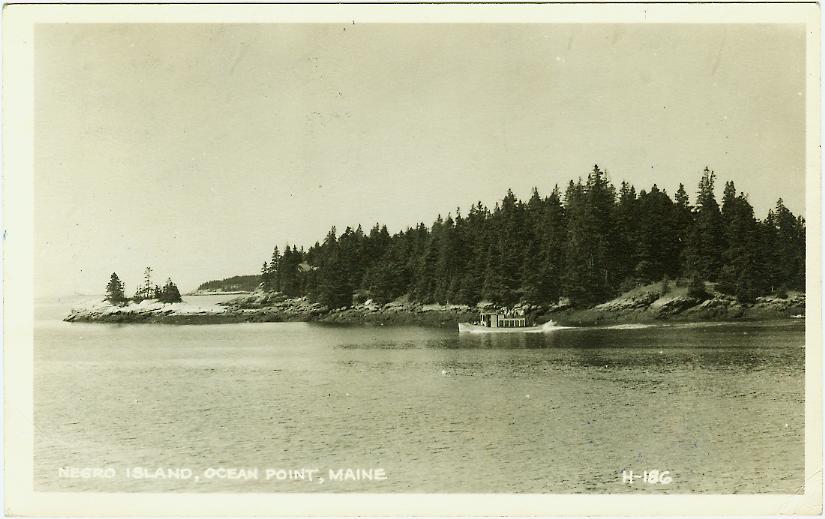
Negro Island, Ocean Point, Maine (c.1950)
